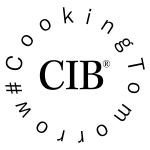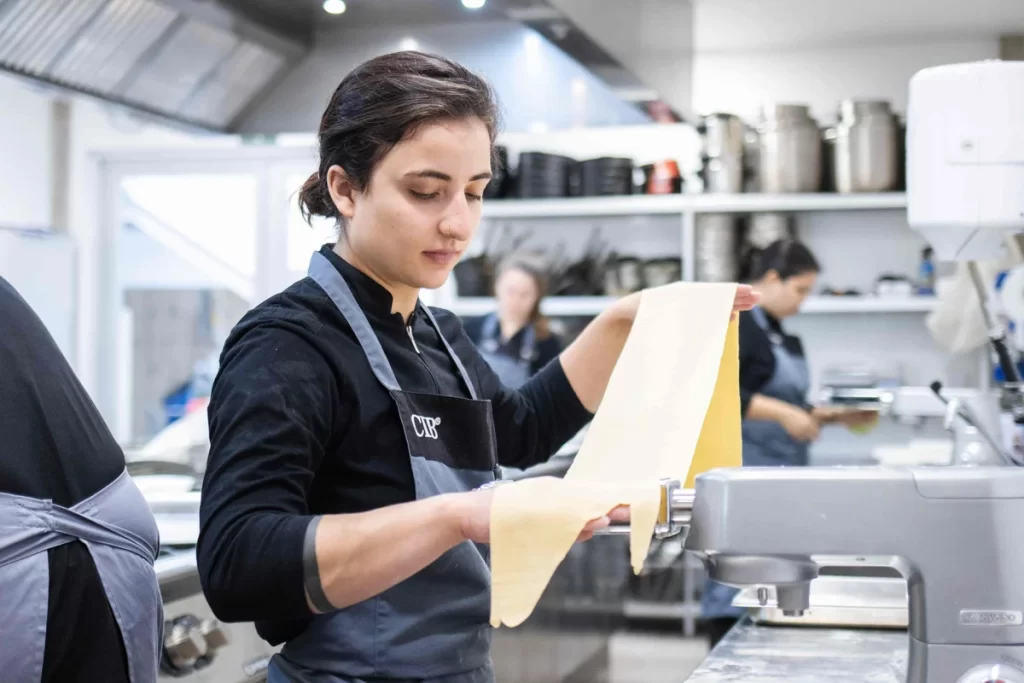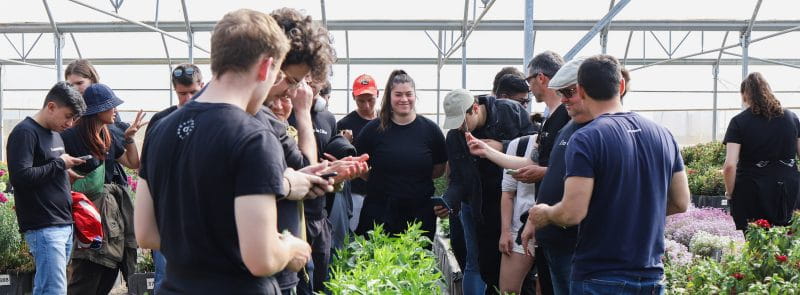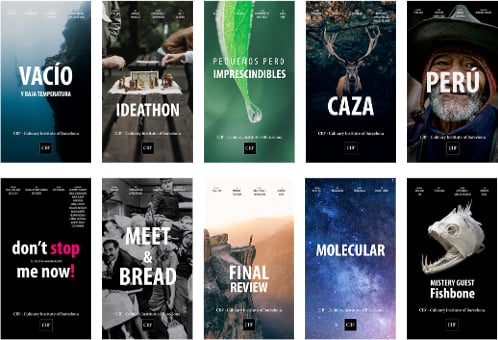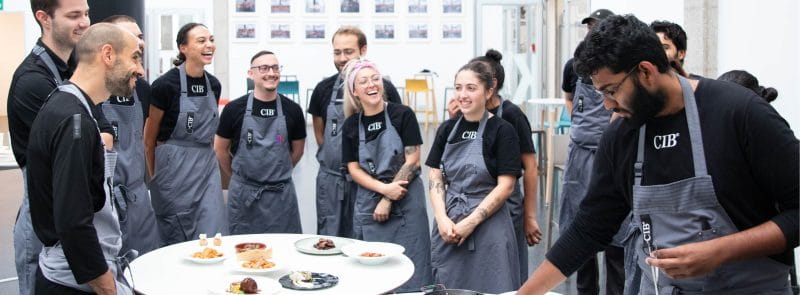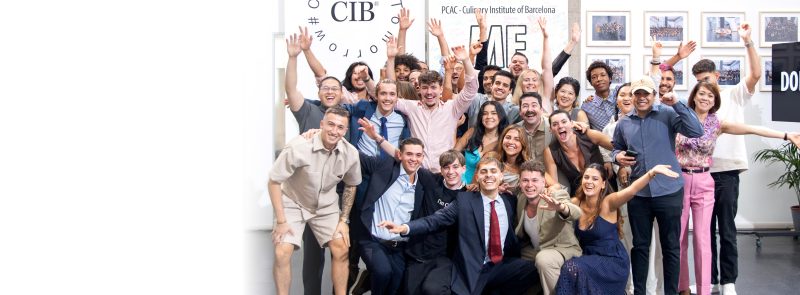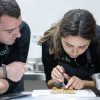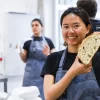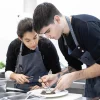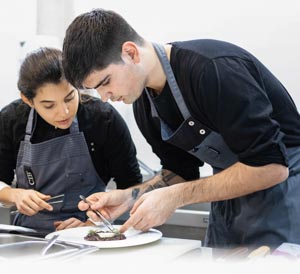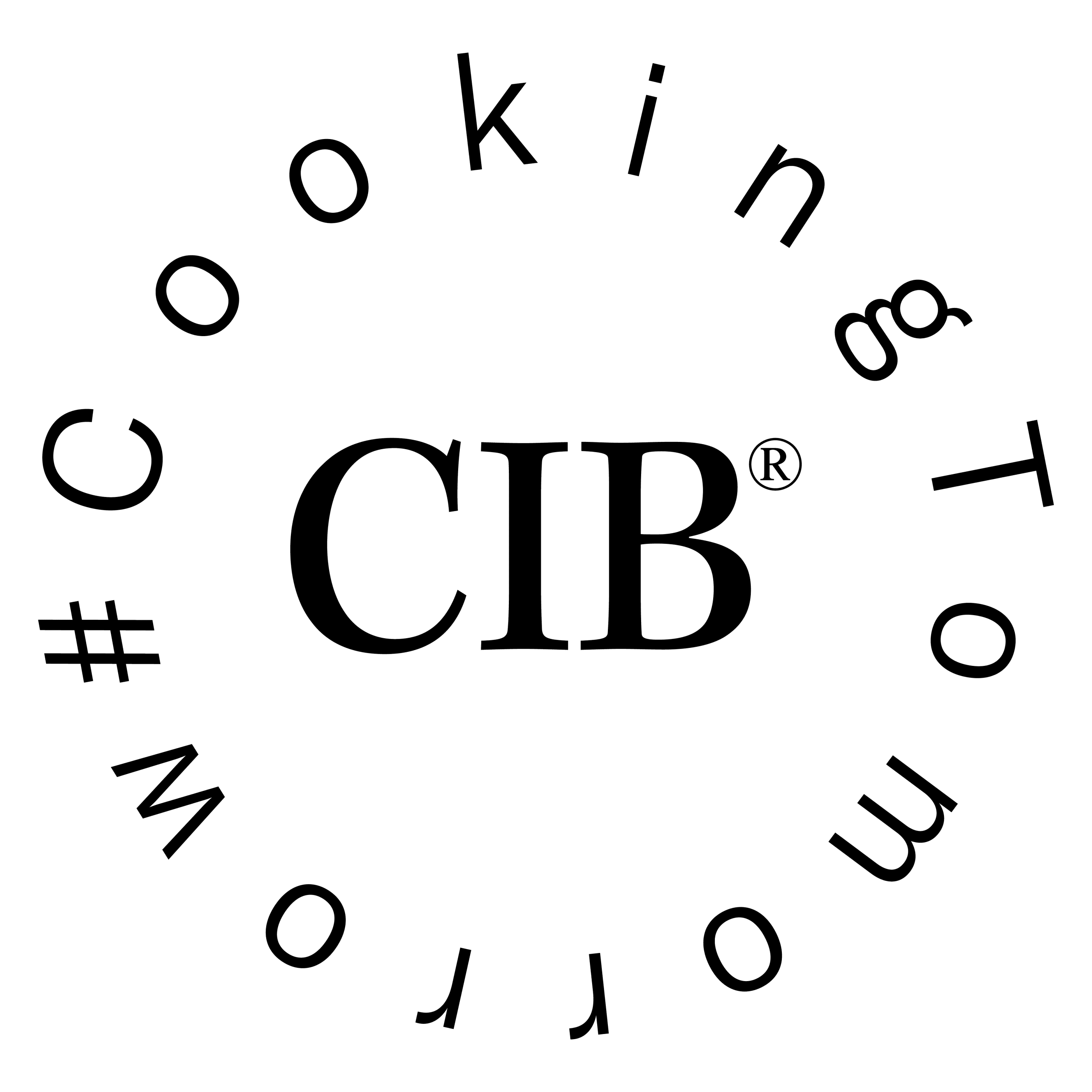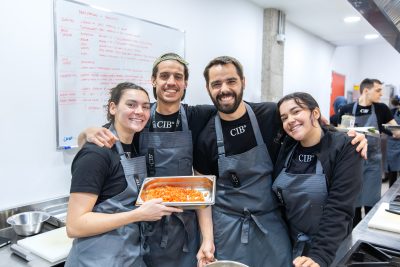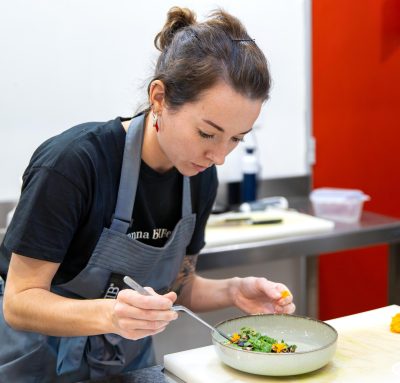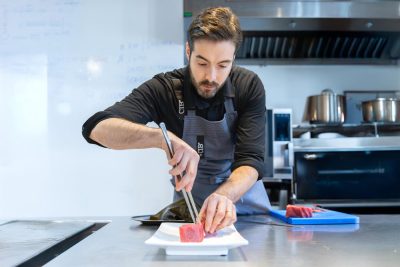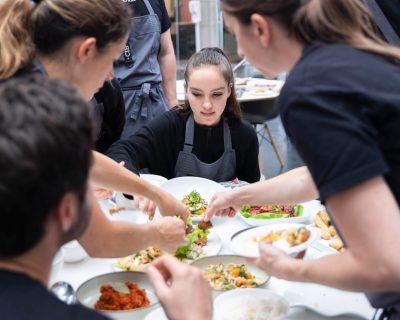The culinary training program’s offer is wide and its duration depends on many factors. There are courses of weeks, a few months, or even 3 or 4 years. Traditionally, a full chef training used to last several years, but often this classical training ended up being a tedious process of repetition of techniques and recipes that took unnecessarily long.
Studying to be a chef requires a high commitment to autonomous work, since many of the purely culinary techniques require repetition to master them and the learning time often varies greatly from one student to another depending on their facilities or interests. But how many years does it take to become a chef? How long does it take to become a chef?
What is gastronomy?
Gastronomy is the study of the nexus that human beings have with their food in relation to their environment or surroundings. The term includes culinary techniques, food science, nutritional data and taste applications.
The first significant step towards the development of gastronomy was the use of fire by early humans to cook food, which led to the first meals, as families gathered around the fire to share the food they had cooked. Prehistoric cave paintings, such as those at Les Trois Frères in Ariège in southern France, depict these early gastronomic events.
Modern gastronomy has its roots in several French texts published in the 19th century, but the idea of linking food, science, society and the arts has been around for much longer. True gastronomy is a discerning multidisciplinary art that examines the food itself along with its context, presentation, freshness and history. Although commonly associated with gourmet, gastronomy is actually a discipline of its own.
What is the gastronomy career?
A career in gastronomy is an academic training that encompasses a diverse range of skills, technical knowledge, and talents, which can range from knowledge of products as raw materials, and leadership in production processes, to the efficient management of any type of restaurant and related business.
Gastronomy professionals are architects of culinary experiences and masters of balance. The academic focus of the gastronomy career is very broad, so it depends on each educational institution and the vision it has for those who choose this wonderful profession.
Why study gastronomy at CIB?
At the Culinary Institute of Barcelona, we focus face-to-face training on the knowledge of products, techniques, skills and attitudes that give a complete training to the professional chef. We consider that the student should take advantage of the time in which they are studying to define what they want to specialize in.
The CIB course that prepares them to be a professional chef lasts 11 months, 8 months of theoretical and practical classes, 6 hours a day, 5 days a week and is complemented by 3 months of stage in a haute cuisine restaurant.
The student who wishes can spend up to 4 years at the school taking courses in culinary specialization and restaurant management.
Our pedagogical method allows students to learn more in less time thanks to its practical sessions focused on the professional context. We understand that it is vital to be prepared as soon as possible to face the real world that is the main objective of all training and that it must always be present. The studies should facilitate the rapid insertion into the labor market, not delay their arrival without a strong justification. True knowledge is learned through experience.
The CIB methodology prepares you to be a chef in a year with competitive advantages and the possibility of specializing.
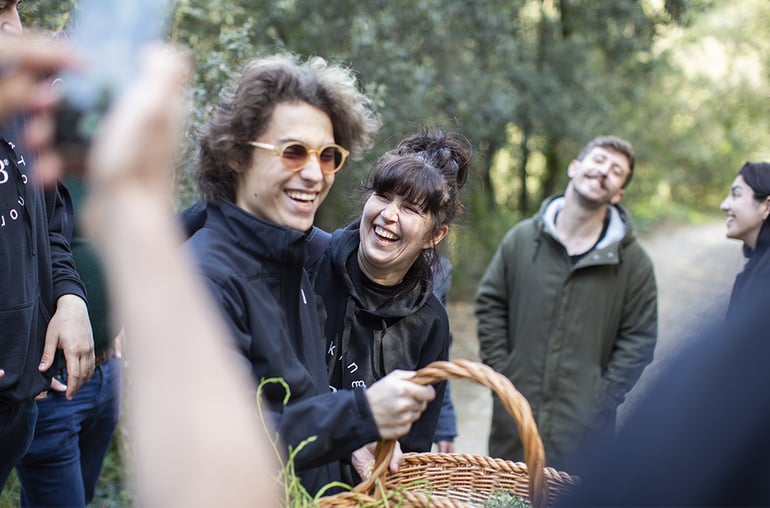
Being a chef is a way of seeing the world
It is a common mistake to consider that a chef is only a chef during the time they are working in a kitchen. A good chef or a good cook never stops being one and understands his profession as a way of life. To be a good chef it is important to know the products, master the techniques, and know the trends in gastronomy and its different contexts. That is why at the CIB we teach to understand the value chain, through our field trips, visiting the farmer, rancher or producer, talking with professional chefs or attending restaurants and analyzing them from the point of view of the restaurateur and the consumer.
We also encourage them to practice the techniques at home and experiment with all the combinations that come to mind with what they learn. We do not believe in culinary training based on recipes and we teach the full range of products that you can have, the techniques that you can apply and the social, historical and national contexts that give shape and meaning to both.
These three legs; product, technology and context define the CIB learning culture, they are the three main axes that allow a global and comprehensive vision of the gastronomy career. In this way, we provide the student with the necessary knowledge not only to be able to cook and interpret a recipe but also to be able to understand each product, all its possibilities and to be able to create their own dishes and original gastronomic proposals.
Each session is a unique event
A year at the CIB passes quickly, but is a very intense year, in which things do not stop happening and no day is the same as the previous one. During the Haute Cuisine Chef Program the student attends more than 500 sessions and each one of them is considered an event that responds to fulfilling a specific objective or satisfying a student’s training need. No two sessions are the same.
What are the key components for us to become a chef?
Creativity is an important element that gives meaning to the entire curriculum. For this reason, the tools and the product offered to the student are individual, so that they can know, try and test their own culinary ideas in our kitchens and prepare their own dishes without fear of making mistakes from day one. In this way, the student takes much more advantage of the time he spends studying and can consult his ideas and doubts with the school’s teachers who are professionals in the sector. Being able to touch, smell and taste the product up close and individually provides the future chef with the ability to better understand the basics of cooking and their learning is considerably accelerated.
How many years to become a chef?
A cooking course is an excellent starting point to embark on a long career as a chef and acquire the attitudes that will allow you to continue learning always, thus trying to never leave the training process closed. The kitchen is constantly evolving and the contexts do not stop changing. The cook cannot stop investigating in order to find his way and continually improve.
At the CIB we encourage students to find their personal interests and specialize in them, and that is why we appeal to the student’s autonomy to search for them. We also design stages in haute cuisine restaurants, which can be 3 or 6 months, adapted to the needs of each student. We maintain a tutoring contact on a regular basis to accompany them in their practices, helping them to take advantage of them.
There are many reasons why someone decides to study gastronomy. Some students are already cooks but want to deepen their knowledge, others have never cooked and are starting the profession through the course, and there are others that come from other professions. A student may want to learn to cook in order to be a restaurant chef or to direct it, to start a business related to gastronomy or to dedicate himself to teaching.
At the CIB we have many of these profiles in the same gastronomic program and the training is valid for all of them. This is so because we understand that anyone who wants to train in cooking must be able to be creative with the knowledge they have. They must have knowledge of business management, leadership and teamwork to be able to start or manage gastronomic businesses. They must be capable to know themselves, their limitations and how to improve.
This is so because we understand that anyone who wants to train in cooking must be able to be creative with the knowledge they have. They must:
- Have knowledge of business management.
- Have leadership and teamwork to be able to start or manage gastronomic businesses.
- Be capable to know themselves, their limitations and how to improve.
We have a set of extra sessions, the Start program, to practice basic cooking techniques and accelerate progress in initial learning. The main objective of the course is to provide the student with all the necessary tools to be fully competent in the world of gastronomy.
In a frenetic context like the current one, flexibility is very important and training must be adapted to the needs and availability of each student. The fact of having the training divided into different programs means that each student can choose when they want to expand their studies or do their stage.
The CIB is an international school and some students return soon to their places of origin to materialize in them everything they have learned. Others find their place in Barcelona thanks to their stay at the school and decide training for a chef for a longer time right after the Haute Cuisine Chef Program or when they have already had their first professional experience.

Training for a chef must be dynamic and participatory
In any training, the student has a tendency to settle, to have a passive position in front of the teacher, perhaps to take notes, and to wait for the day of the exam to demonstrate what they have learned. At CIB, we believe that the best way to learn is by participating in classes, interacting with the product, and having the freedom to be creative from the beginning of your studies. In both the content-focused classes and the demonstration and practical classes, we ask students to get involved in the classes and participate in them. We put the chairs in a circle and eliminate the tendency to passivity of the tables furthest from the teacher in a classroom. The objective is to create a suitable atmosphere so that students can apply the knowledge they learn as soon as possible, in the same classrooms or in their work places.
Our methodology is designed in such a way that each day theoretical sessions are combined with practical sessions and demonstration sessions and within a few weeks of starting, the students are already creating very elaborate dishes. The evaluation is carried out based on challenges in which everything learned up to then is put into practice, asking the student to give meaning and cohesion to all the knowledge learned in each of the subjects. This way of teaching allows the learning process to be exponential and for the student to always keep in mind the practical and creative dimension of what he learns.
We have opted to maintain 100% face-to-face training, understanding that online cooking training has many shortcomings, such as the possibility of always having a wide variety of products and the technology of a professional kitchen at hand. We are currently implementing hybrid digital environments that reinforce the teaching process with complementary content, but without face-to-face learning would be much slower and incomplete.
Professional Chef Training with a focus on the labor market
In gastronomy especially, much of the truly important knowledge is practical.
At CIB we want to give students the culinary, business and lateral bases, so they know which are the keys to which they should pay attention when they start their professional experience. We accompany them in this process and prepare them for the world of work. It will be through professional experience that you can best put into practice and perfect this knowledge, since all training has its limits.
The commitment and attitude of the student is vital for him to be able to build a successful future. That is why once the student completes his training he becomes a member of the CIBer family, the CIB staff make ourselves available for what we can be useful for. Students will know that they can always count on the CIB professors to ask for their opinion, support or advice on their professional projects, even if they no longer study with us.
For the chef of the 21st century, it is no longer enough to know how to cook and must understand that his job is to design a user experience that exceeds the expectations of the diner. This includes many factors such as presentation, the way of eating, the space in which people eats or the environment in which you receive the menu. That is they need to use creativity and innovation to fully meet the new needs of the customer. To achieve a good gastronomic proposal, you must know the product, investigate new trends and know how to work as a team.
At CIB we think that all these skills and attitudes cannot be forgotten in the training of a chef. That is why we are committed to intensive and practical training that gives the student all the tools they need to be able to adapt to new contexts and adopt attitudes. This allows you to continue learning for the rest of your professional career.
